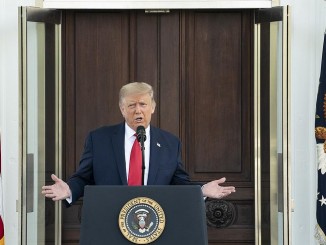The economic crisis has hit cities across the U.S. almost like some sort of natural disaster. People have been forced out of their homes, jobs destroyed, schools shut down – everywhere cities are being ripped apart. This is no natural disaster but a man-made one, a disaster orchestrated by the big banks and corporations in order to force down wages and benefits, drive cities into bankruptcy, and profit from the privatization of public services. This is happening all over the U.S., but the worst hit city by far has been Detroit.
The destruction that has taken place in Detroit is incredible. A city which was once the home of two million people has been reduced to a population of 700,000. Houses stand in the middle of fields of vacant lots, abandoned by their owners. Electricity and other utilities only function occasionally. This is the outcome of an economic attack on a working class city by some of the wealthiest banks and corporations in the world, led by their political servants in office.
Detroit was once the center of the U.S. auto industry. Companies like Ford, General Motors, and Chrysler had factories in Detroit and the surrounding area, employing thousands of people. But in the last decades this has changed. Plants were modernized with new technology, allowing companies to lay off thousands of workers. Then in the 1980s and 90s, these companies moved much of their production to other countries where labor is cheaper. Those workers that remained in Detroit and held on to jobs suffered huge attacks. Today only one in four adult residents of Detroit has a job. The median income level is only $27,000 per year. About 19 percent of working adults are making $10,000 per year or less.
The result has been a shrinking city whose remaining population has only gotten poorer. And as a consequence, housing, public services, education, and everything else has suffered. In the 1990s, the banks preyed upon the poor with predatory loans known as “sub-prime” mortgages. Hundreds of thousands of people holding onto their housing by taking out unstable mortgages were suddenly put out of their homes when the housing market crashed in 2008.
The crisis has also resulted in a massive growth of public debt. By 2012 the city was $12 billion in debt, about $17 billion including interest. The result is that public services in Detroit have been severely cut. In the last six years, 136 public schools were closed. One third of the fire department was laid off, and the department has lost half of its firetrucks and ambulances. Only 40 percent of the streetlights are working. Garbage is collected only once per week.
The debt that Detroit faces was not a result of financial mistakes by public officials. For example in 2005 mayor Kwame Kilpatrick facilitated a deal with USB Financial Services to invest public money. This supposedly profitable investment resulted in Detroit owing $2.6 billion. GM, Chrysler and Ford all received hundreds of millions of dollars in tax breaks on their property.
Today Detroit is filing for bankruptcy. The bankruptcy will result in the cancellation of retiree pensions for city workers. And plans are being drawn up to privatize the cities’ infrastructure. In other words, the electricity, water, sewage and other services developed and paid for with public money will be handed to companies so they can begin to profit. The impact of this policy is already clear. In 2011 Detroit’s public transit system was handed over to a private management company, Transpro. This company immediately fired two thirds of the transit workers and eliminated 24-hour service. Similarly, many of the public schools, closed due to lack of funds, were soon re-opened by private charter school companies. New proposals are on the table to privatize the city’s water and sewage department, reducing the current 2,000 person workforce to about 600. What’s clear is that Detroit’s debt is being used as an excuse to put public services on the table for the profits of private companies.
Detroit is a glimpse of the agenda the wealthy elite are bringing to other cities in the U.S. Nothing could show more clearly that the interests of working people cannot be met while the resources are controlled by private interests and a government that serves them. These are our cities and our society – we should decide what to do with them!




